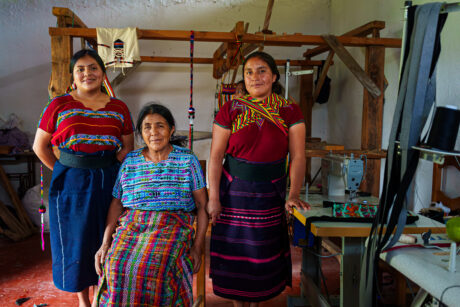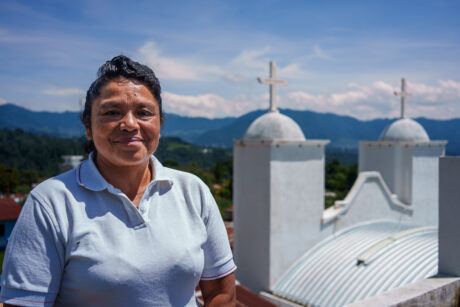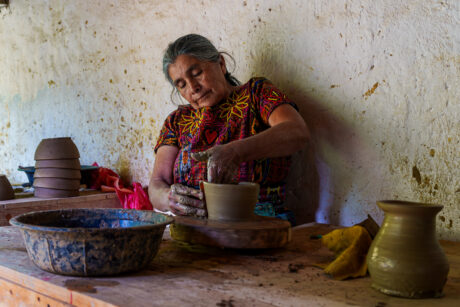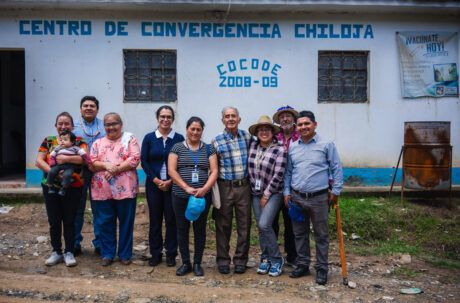O Projeto de Consolidação da Paz na Guatemala, conhecido como Projeto Tecendo a Paz, foi nomeado um dos 10 finalistas do 2024 Colaboração da USAID, Aprendizado, e Adaptação (CLA) Competição de Casos, um concurso global que homenageia práticas inovadoras em programação e resultados do pessoal da agência e dos parceiros de implementação.
Tecendo a Pazcaso, intitulado “Poder para o povo: Capacitando Comunidades para Construir Coesão Social nas Terras Altas Ocidentais da Guatemala,” exemplifica os princípios fundamentais do CLA ao integrar abordagens de tomada de decisão diretamente na estratégia principal do projeto para resolver conflitos locais e promover o desenvolvimento comunitário.
Financiado pela USAID Tecendo a Paz, implementado pela Creative, visa reduzir o conflito social e a violência e fortalecer a coesão social, com foco específico em Terras Altas Ocidentais da Guatemala. O projecto demonstrou uma integração exemplar das abordagens de tomada de decisão do CLA na sua estratégia global.
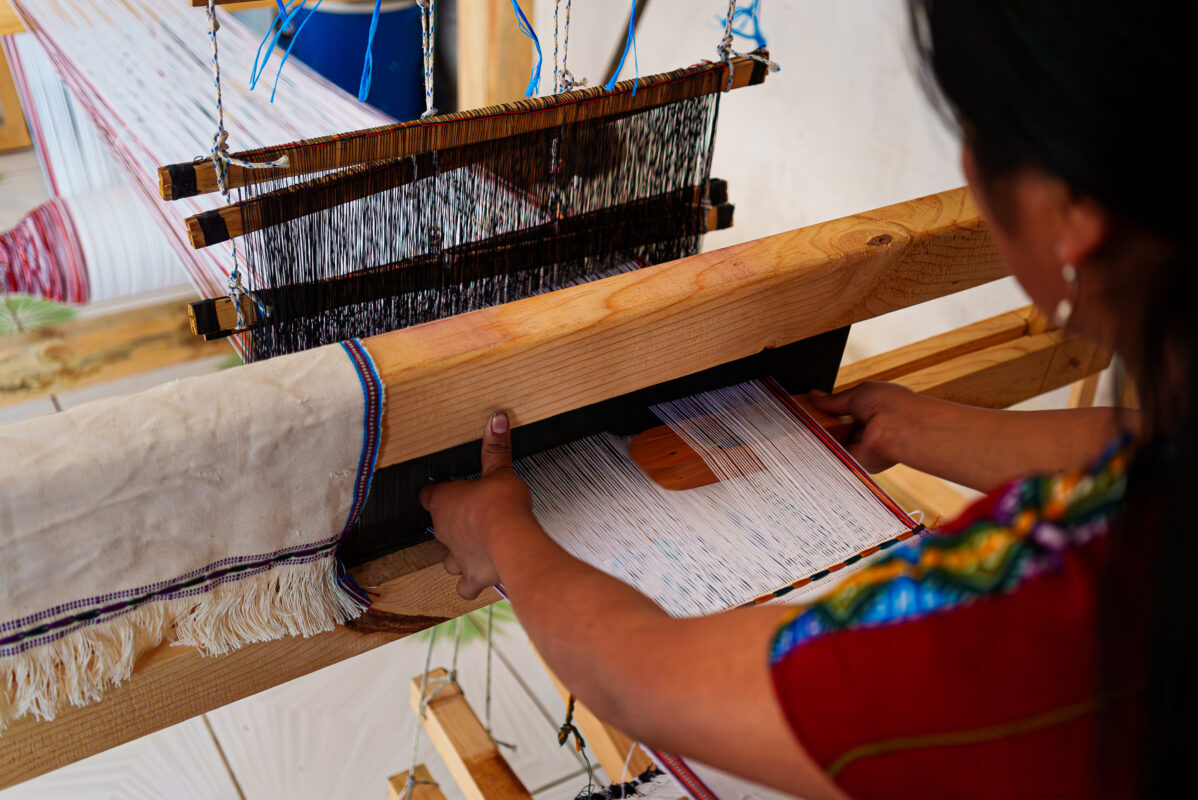
Este ano marca a 10ª Competição Anual de Casos CLA, que recebeu um recorde 176 submissões, com 73 por cento de participantes pela primeira vez.
Em 2012, Gabinete de Planeamento da USAID, Aprendizado, e Gestão de Recursos introduziram o CLA como a abordagem da agência para aprendizagem organizacional e gestão adaptativa. CLA visa enfrentar desafios comuns no desenvolvimento internacional, como a falta de coordenação entre doadores e implementadores, desenvolvimento impulsionado pelos doadores, dados subutilizados, práticas desatualizadas, irrelevância para os contextos locais e adesão rígida aos planos, apesar da mudança das circunstâncias.
Através da integração do CLA no ciclo do programa, profissionais de desenvolvimento melhoram a sua eficácia através da colaboração estratégica, aprendizagem informada e tomada de decisão adaptativa em ambientes organizacionais favoráveis.
Utilizar o CLA para uma implementação eficaz e sustentável do programa
Uma das principais maneiras Tecendo a Paz O CLA aplicado foi por meio de seus relacionamentos e abordagens de tomada de decisão, garantindo que a equipe mantivesse relacionamentos fortes com as comunidades e aliados importantes, facilitando a implementação local contínua e eficaz.
Por exemplo, no município de Cunén, Quiche, Tecendo a Paz identificou conflitos específicos relacionados à juventude, gênero, recursos naturais, e governança. Colaborando com líderes locais e membros da comunidade desde o início, o projeto foi capaz de priorizar essas questões e direcionar ações para resolvê-las. Esta colaboração foi crucial na identificação dos principais aliados e intervenientes que poderiam melhorar e facilitar a estratégia a nível local., otimizar os recursos do projeto e garantir que as intervenções fossem relevantes para as necessidades da comunidade.
A aprendizagem foi outro componente crítico do Tecendo a Pazsucesso. O projeto estabeleceu mecanismos para feedback contínuo, que capacitou funcionários em todos os níveis para contribuir na tomada de decisões, especialmente dentro da equipe de implementação. Documentando e compartilhando sistematicamente as melhores práticas e lições aprendidas, Tecendo a Paz foi capaz de refinar suas abordagens para resolução de conflitos e envolvimento da comunidade. Esta abordagem de gestão adaptativa garantiu que as atividades respondessem ao contexto local em evolução, fazendo os ajustes necessários para melhorar os resultados.
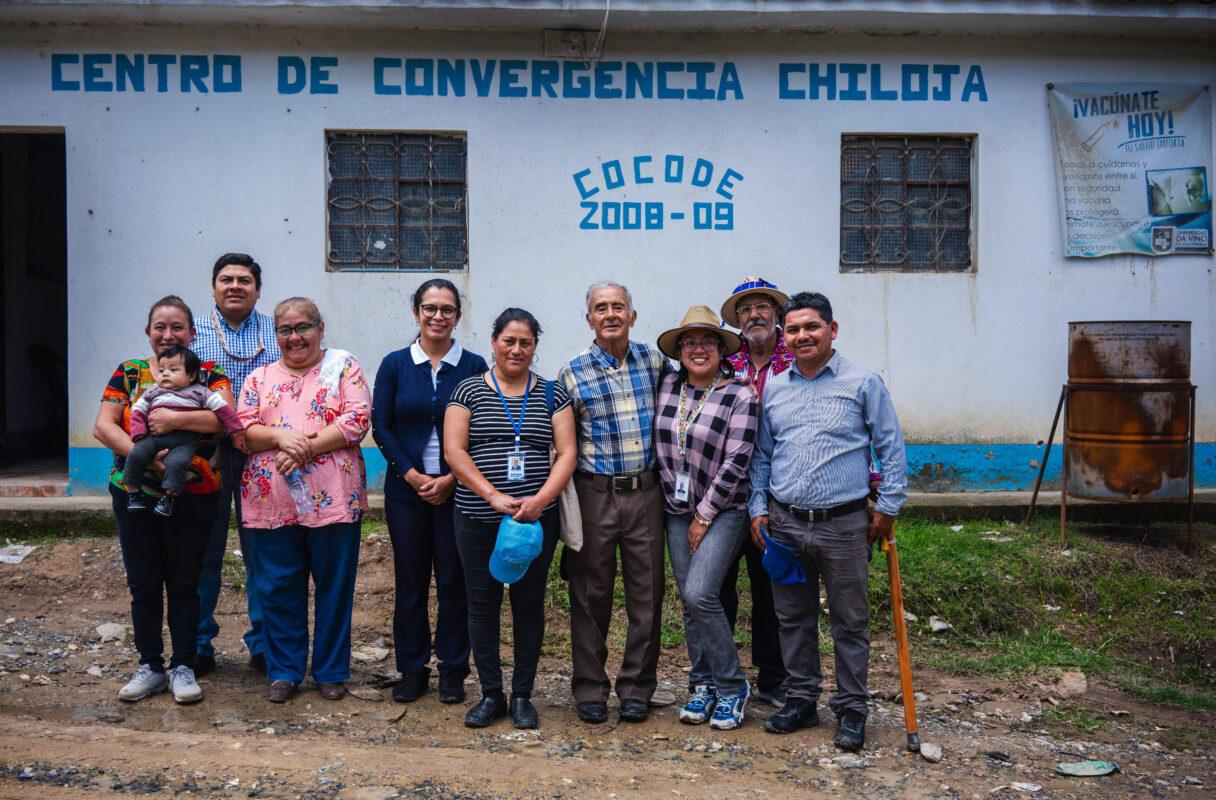
Várias condições facilitadoras criadas por Tecendo a Paz também desempenhou um papel significativo na aplicação eficaz do CLA. Ao promover uma cultura organizacional que priorize relacionamentos e redes, o projeto foi capaz de impulsionar o empoderamento local estratégico. Esta cultura incentivou a identificação e o envolvimento das principais partes interessadas, garantindo a inclusão e a apropriação local do projeto.
Geral, Tecendo a Pazimplementação de abordagens de CLA adequadas ao contexto - colaborando com os parceiros certos, aprendendo com feedback contínuo, e adaptação de estratégias baseadas em evidências e no contexto local — demonstra como os projetos de desenvolvimento podem enfrentar desafios complexos e alcançar um impacto sustentável.
Leia mais sobre o 2024 Competição de Casos CLA aqui.
